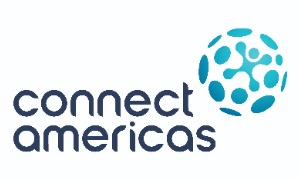Whereas in 2010, the global services market represented US$ 250 billion, it was estimated that it reached US$ 350-400 billion in 2012. In addition, business structures are changing as companies are moving from standalone outsourcing and shared services models towards a global business services model, where more locations are being considered besides the traditional offshoring hubs of India and the Philippines. These trends imply a huge opportunity for Latin American countries.
In this context, enhanced employability is crucial for the future development of this industry, as the current and future workforce determines the opportunities for entry and/or upgrading an industry offshoring location. The demand for skills not only increases in amount and quality, but is also constantly changing. In the services landscape, the amount of employable human capital is one of the most crucial factors that enterprises take into consideration when deciding whether to set up their businesses in another country. However, in most outsourcing locations, there is a considerable mismatch between the skills taught by the education system and the ones required by the labor market.
This has led many countries to develop finishing school programs as an effective tool to face this challenge and take advantage of this growing industry that seems to have room for many players, aiming at bridging the gap between formal education and industry requirements. Finishing schools are non-formal educational institutions designed for short-term training (running from five weeks to one year) and implemented by academia, private sector and government partnerships. Their main objective is to train a particular segment of the labor pool according to the needs of specialized industries in order to improve employability. The main idea of a finishing school program is to enhance the employability of the labor pool through a complementary education and training framework that aims at supplementing, rather than substituting, formal education.
The concept of “finishing” implies the existence of a necessary previous step involving formal education; however, as it is naturally difficult to keep up with the dynamic and changing market forces that drive global services, finishing schools are designed to be a more flexible complementary tool that can tackle those dynamic forces and train employees according to the latest industry requirements, which, generally speaking, consist of practical knowledge regarding the specific field of work, a committed attitude towards continuous learning, soft skills, team work skills and analytical capabilities.
As finishing school programs are demand-driven, private companies participate actively in program and content design, establish trainee selection criteria, provide some of the trainers responsible for teaching the required contents and skills, contribute with an internship system for trained students, and offer their physical infrastructure for practical training. In fact, a better job placement for the actual workforce is a true indicator of success of the system.
According to worldwide best practices, in order to increase employability, it is essential that finishing schools be structured as a flexible tool, taking into account the country’s specific situation, needs and opportunities according to what is being demanded; that they be backed up by specific training programs involving instruction in both the technical and soft skills directly related to the specific industry sector the country needs to develop; and that they be designed and implemented through effective public-private partnerships. As programs require some background knowledge, a number of finishing schools also establish certain eligibility criteria, assessed by aptitude tests and/or interviews; and even though there are certain programs that are taught through e-learning or blended learning platforms (especially those related to the ITO sector -Information Technology Outsourcing-), most finishing schools face to face courses. As a final point, effective finishing school programs need to be implemented through an integral approach, ranging from needs analyses to systematic evaluation of instances which can be well adapted to business trends.
For more information on finishing school programs, see this link.



Follow Us